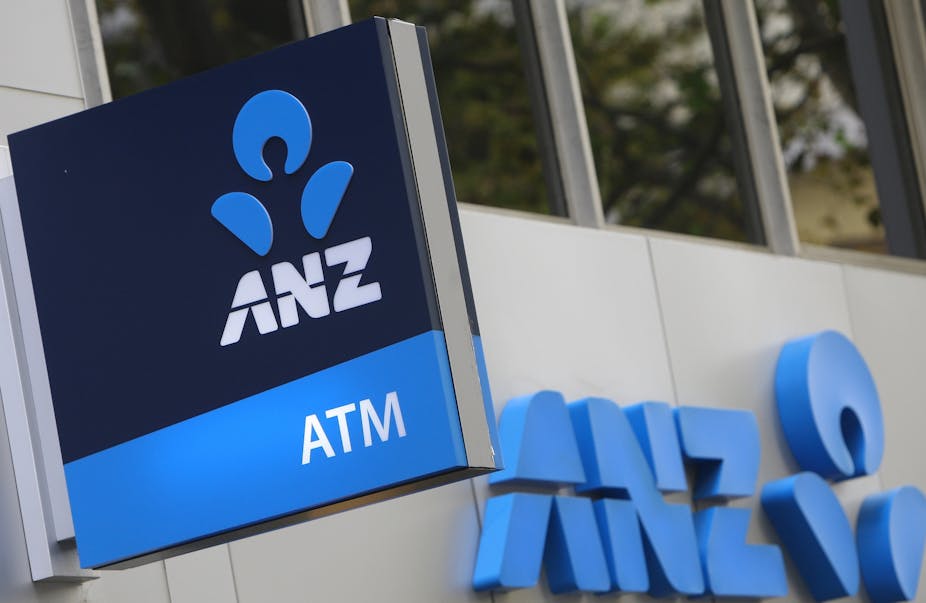In Australia’s economic history, there always been tension between Labor and the banks. My grandfather was an adviser to wartime Labor Treasurer and Prime Minister, Joseph Benedict Chifley, better known as “Ben”, in the 1940s.
Grandpa thought Chifley was a magnificent Prime Minister until he went too far with Bank nationalisation, which together with petrol rationing being retained too long after the War, led to Chifley’s defeat at the 1949 election.
But even before that there was tension. My other grandfather was put off by a Labor politician called Frank Anstey at the turn of the century who wrote a pamphlet called “The Kingdom of Shylock” (which had anti-Semitic overtones). But racism aside, suspicion of the private banks led to Labor’s establishment of the Commonwealth Bank, in their early years.
The Great Depression, also led to more anti-bank sentiment (especially from a young Ben Chifley) and the Labor’s post-war establishment of the central banking system had its roots in those formative years. Even the great reforming Treasurer and Prime Minister Paul Keating, had his clashes with the private banks, but from a pro-market perspective.
Keating’s entrepreneurial father, Matt, a boiler maker turned small business man from Bankstown in Sydney’s west was turned down for a loan from one of the established banks, when wanting to expand his export business to what is now Malaysia. Keating Senior had great business flair, but being Irish Catholic, self-made and from working class Bankstown, he clearly in the view of his bank manager didn’t “belong to the right club”.
Now in modern times it’s Treasurer Wayne Swan’s turn. The latest unilateral move by ANZ to increase interest rates on its variable home and small business loans has prompted the latest round of government-banker tension.
While the banks are claiming that in the post GFC environment, funding issues have changed sharply and in the short term they have to recover costs, others claim they are price gouging after receiving a guarantee from the same government at the height of the Lehman Brothers crisis.
The banks have their critics, but they are also attracting some unusual defenders too. Even sensible professional economists like the NAB’s Rob Henderson had to (sheepishly) defend the banks’ actions at a recent CEDA Forum (although, to be fair to Rob, he is employed by one of the big four, so he probably had no choice).
However despite all the noise and claims of “price gouging” on one hand and “bank bashing” on the other, what are the key issues at stake?
Firstly, there is the issue of whether the banks unilateral decisions are justified or even wise. They probably have a case about short-term funding cost increases but is it a smart strategy to pass all these costs on? Especially if it’s a short term issue? If the “Big Four” (Westpac, ANZ, NAB and the Commonwealth) can do it, what does it mean for smaller players and the impact on competition?
Secondly, to what extent do banks have a social obligation to Australia? After all, at the height of the GFC, the Labor Government gave them a guarantee. So can they justify earning “super-normal” profits. Some critics have claimed the banks are socialist in a crisis and want government backing, but return to capitalism when good times return.
Thirdly, what does unilateral action by ANZ and the others mean for the Reserve Bank’s potency in terms of monetary policy? Can the private banks ignore the RBA? In many ways the RBA has already answered this question, with one of its leading lights, Assistant Governor Guy Debelle saying in a recent speech that the RBA did take into account the funding pressures the banks are experiencing.
Fourthly, if the Banks are facing funding costs, is international expansion a way out? The Big Four might act similarly at home, but overseas their strategies could not be more different.
ANZ has its aggressive Pan Asian strategy and ambition to be a regional Bank with Australasian origins; the Commonwealth too is big in emerging Asia, especially Vietnam and Indonesia; Westpac has focussed its efforts on the Pacific. The NAB, after some bad experiences in Ireland, the United States and the UK is the least globally ambitious of the Big Four.
The famous economist and moral philosopher Adam Smith once warned about butchers, bakers and candlestick makers conspiring together to deceive the public, Hence the need for checks and balances – whether it be in terms of competition policy and regulation. Paul Keating’s decision to open up banking to competition was part of this sentiment. The present tension between the current Treasurer and the banks is not surprising given our history and the view more recently that in the GFC the Labor Government did the banks a favour (and we hope, the nation) with the government guarantee.
Interestingly, on the other side of politics, there’s tension too. It took Finance spokesman Andrew Robb only a few hours to come out squarely defending the banks in response to Swan. However, the Opposition Treasurer Joe Hockey, the man who would be Treasurer in a Coalition Government, has periodically taken big swings at the banks.
And what is Joe’s full name? Yes you guessed it. Joseph Benedict Hockey. Yes, he was named by his Labor voting father after his hero, Joseph Benedict Chifley. We really can learn from history - especially economic and financial history!

